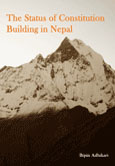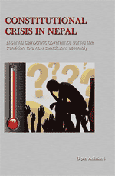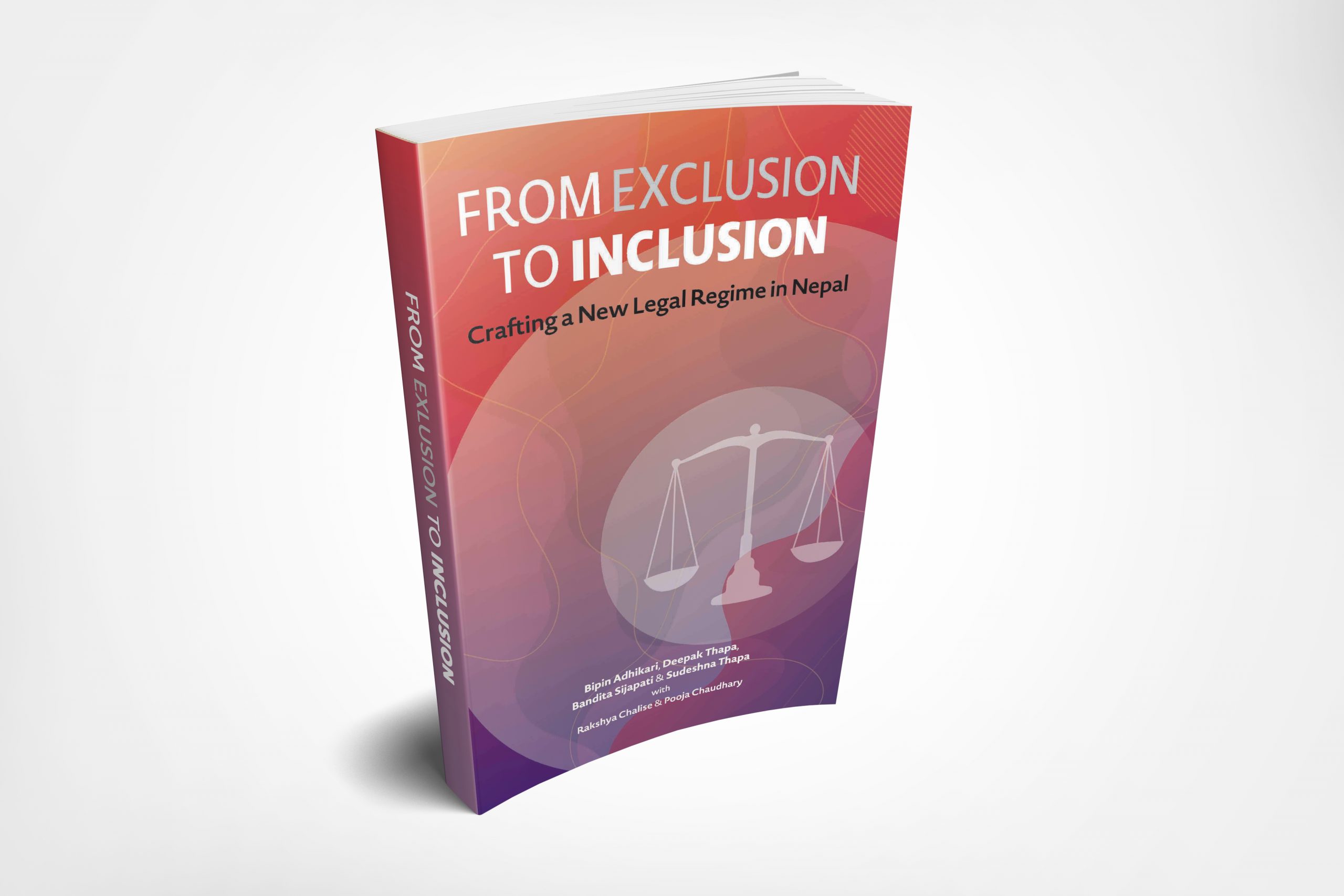Foreword by Manohar Prasad Bhattarai
Nepal is likely to complete its nearly four-year long constitution drafting process by 27 May 2012. The Constituent Assembly will have to engage deeply in a variety of issues to meet this deadline established by Article 64 of the Interim Constitution. As in any transitional country, the challenges of participatory constitution drafting are enormous. Since 28 May 2008, when the first meeting of the Constituent Assembly took place, the country has been discussing democracy, social justice, federalism, devolution of power, and the rights of minorities and indigenous people. In the course of these conversations, Nepal has studied the experiences of other countries, taking advantage of the considerable knowledge on comparative experiences in constitution building. This has enabled nuanced debates on issues which do not appear complicated at first glance.

The constitution drafting process in any nation must consist of inclusive and participatory deliberations resulting in agreements establishing the fundamental law of the land. Identifying the fundamental values and institutional preferences of the people is a crucial task. Equally important, however, are negotiations between different parties, sectors and interests in the national context. In this sense, the political process in Nepal is no longer an elite exercise. As frequently highlighted by Subash C. Nemwang, chairperson of the Constituent Assembly, the final agreement on the constitutional arrangement must be satisfactory to all the stakeholders within the country. Indeed, the Constituent Assembly has already fulfilled many of its duties, reaching settlements on a plethora of issues. At this final stage, the active and serious engagement of the political leadership is required to complete the process.
This work by Bipin Adhikari is a brief study of the functioning of the Constituent Assembly as well as the nature of the remaining tasks of constitution building. Beginning with the opening of the Constituent Assembly on 28 May 2008, these pages review the activities of the constituent body over the past 46 months. Outlining the preliminary groundwork, this retrospective covers the efforts to collect public opinion and recommendations, the deliberations and reports of the thematic committees, emerging constitutional issues, and crucial areas of dispute awaiting settlements. There are discussions of the three central disputed issues: form of government, federalism, and the electoral system. In this context, Adhikari highlights the work of the Dispute Resolution Sub-Committee under the Constitutional Committee of the CA and the recent reports of the State Restructuring Commission.
Commenting on the disagreements in drafting the constitution, Adhikari is of the view that lack of vision as well as of credible leadership has hampered the process. Nonetheless, there are ideological differences between different political parties on several constitutional issues. For instance, there is disagreement on core issues of constitutional supremacy, government accountability, and the rule of law. At every stage of the process, the ideological position of the ruling party has comprehensively impacted the Assembly. In this sense, the delays are more a result of the beleaguered peace process than of technical\legal constitutional issues. This is an important point to remember as the new constitution is being drafted in the context of the peace process. The 21 November 2006 Comprehensive Peace Accord concluded between the Government of Nepal and the CPN (Maoist) and the 8 December 2006 Agreement on Monitoring of the Management of Arms and Armies form part of the Interim Constitution. If the chance of institutionalized peace is bleak, Adhikari believes that some of the major parties would lose the motivation to draft the new democratic constitution. He also maintains that the contents of the draft constitution will be carefully reviewed by Nepal’s powerful neighbours.
It will be evident to readers that Adhikari does not dwell on the political aspects of the major controversies at the Constituent Assembly. The challenges of handling the demands of the 2006 People’s Movement, the preceding insurgency, the emergence of identity politics, the cultural and national foundations of the state, and discussions on social transformation are not addressed here. Similarly, Adhikari does not talk about managing the transition in the post-constitution scenario, an issue he has discussed in depth elsewhere. These omissions are deliberate as this work is generally aimed at recapping what has been achieved and what remains. Indeed, there is a dire need for a work of this kind which can function as reference material for legal experts, law makers, scholars and the general public. I believe that this publication helps fill the existing vacuum.
Bipin Adhikari needs no introduction to readers interested in Nepal’s constitutional development, parliamentary process and the legal system. A senior constitutional expert, he has extensively written and spoken on issues of constitutional concern. As a constitutional expert working very closely with lawmakers in the Constituent Assembly, he is deeply aware of the discussions and considerations influencing decisions since May 2008. I am confident that this publication will be of much use to the public, especially professionals, civil society members and the international community working in Nepal. It will also positively impact the ongoing constitution building process.
Manohar Prasad Bhattarai
Secretary General
The Constituent Assembly of Nepal
27 March 2012





